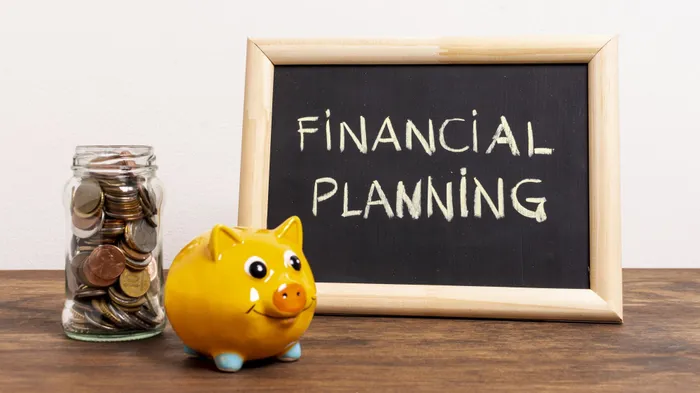Rising above economic uncertainty with good money habits

By: Peter Wrench
With economic growth slowing and households being constantly put under increased pressure, the struggle is real. An ever-shifting economic landscape means that we never quite have a firm footing. Financial security is perhaps the only anchor that helps us maintain stability. But how do we even get there in this economic storm? Stability begins with forging the right habits.
According to the Momentum Unisa Household Financial Wellness Index, financial literacy plays a major role in establishing good money habits. It was found that while 45.7% of the 19.2 million households deemed themselves to be financially literate, only 15% were actually financially literate and were empowered to make the right money decisions.
By dedicating time to reflect on your money habits, like developing a comprehensive budget, establishing an emergency fund, crafting a financial plan, setting achievable goals and initiating investments early on, you lay the groundwork for a secure and stress-free financial future without having to worry too much about economic curveballs.
Habits v behaviour
Our habits are usually determined by our behaviour. So, to cultivate positive money habits, it is essential for you to be honest about your financial behaviours, both positive and negative. Engaging in open conversations with your loved ones about your spending habits, identifying areas for improvement, and implementing strategies to curb impulsive spending can lead to more informed and conscious financial decision-making.
Set financial goals
The journey to financial success always begins with a plan. We all work hard for our money but tend to not know where it goes.
At the core of this journey lies the importance of setting clear and attainable financial goals. These goals act as guiding principles for financial management, providing a roadmap for saving, investing and spending decisions.
Whether the goal is to eliminate debt, save for a major purchase or build an emergency fund, having well-defined objectives will help you stay focused, motivated and accountable.
Get out of debt
Cut up the credit cards and don’t take on new debt. List your debits in order of amount owed and attack the debt with the smallest balance. Once paid off, attack the second one, and so on. Sell your car if you can’t afford the payments and buy a second-hand car cash. If, at any time, you use your funds from your emergency fund, you need to re-focus on refilling it.
Create a solid budget
The creation of a budget is a fundamental tool for achieving financial control and stability. By diligently tracking income and expenses, you can identify areas where cost savings are possible and avoid the pitfalls of overspending.
Account for every rand that you earn – knowing where it is going. Don’t have an amount left over in your budget (surplus). Cut or review expenses; find a financial adviser you can trust. Learn to live within your means. The acid test is: if you can’t pay cash for it, you can’t afford it.
Living within one’s means is a cornerstone of financial wellness, yet studies such as the Momentum Unisa Household Financial Wellness Index reveal that many South Africans struggle to cover monthly expenses, underscoring the pervasive issue of living beyond one’s financial capabilities.
Save your money, save your future
Many people focus immediately on saving for retirement, their children’s education and other financial goals, but you should only do this when you are out of debt.
Debt and income are the cornerstones of any financial plan. An income is our biggest wealth-building tool, and we need it to look after our loved ones.
Saving for the future, regardless of the amount, is a crucial step towards achieving financial security and stability. The act of saving not only provides a safety net for unexpected expenses but also instils a sense of financial discipline and responsibility. Even small contributions to a savings account can accumulate over time, providing a buffer against financial uncertainties and unforeseen emergencies.
This is why one of the first and most important savings goals is to establish a workable emergency fund. This is a critical step towards building financial resilience and preparedness. You never know when your car will break down, a family emergency may require you to travel in a hurry, or any one of a thousand unexpected emergencies that life can throw your way.
Ground yourself in good habits
The journey towards financial freedom and success is a never-ending journey of self-reflection and improvement. By adopting and nurturing good money habits, you can navigate this journey with confidence, resilience and a sense of empowerment.
Take deliberate actions, make informed decisions and commit to your financial wellbeing. Anyone can achieve their financial goals and aspirations while enjoying a stress-free and prosperous relationship with money.
* Wrench is an executive financial adviser from Momentum Financial Planning unpacks the importance of good money habits in finding financial stability.
PERSONAL FINANCE